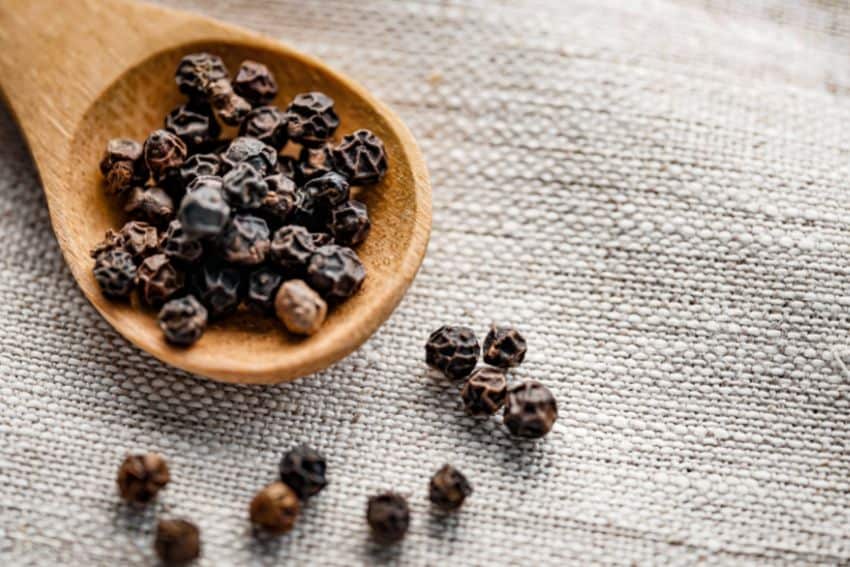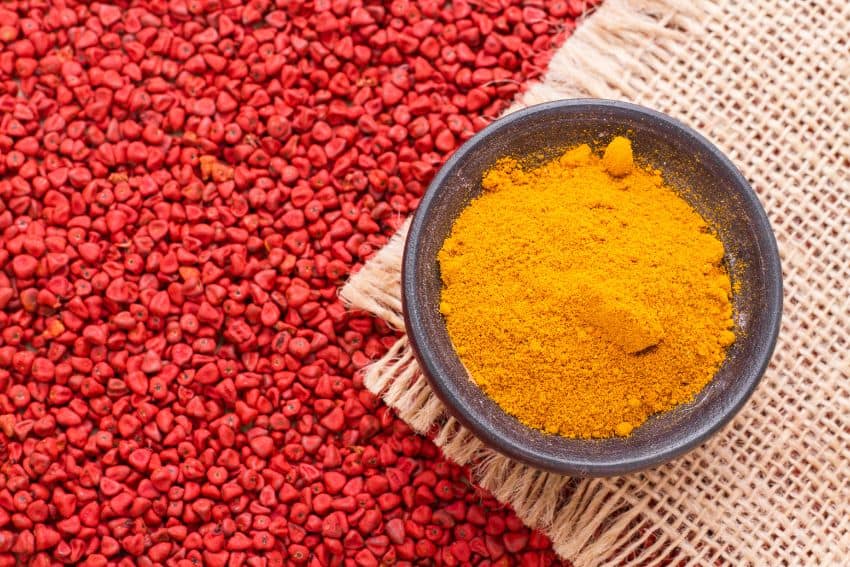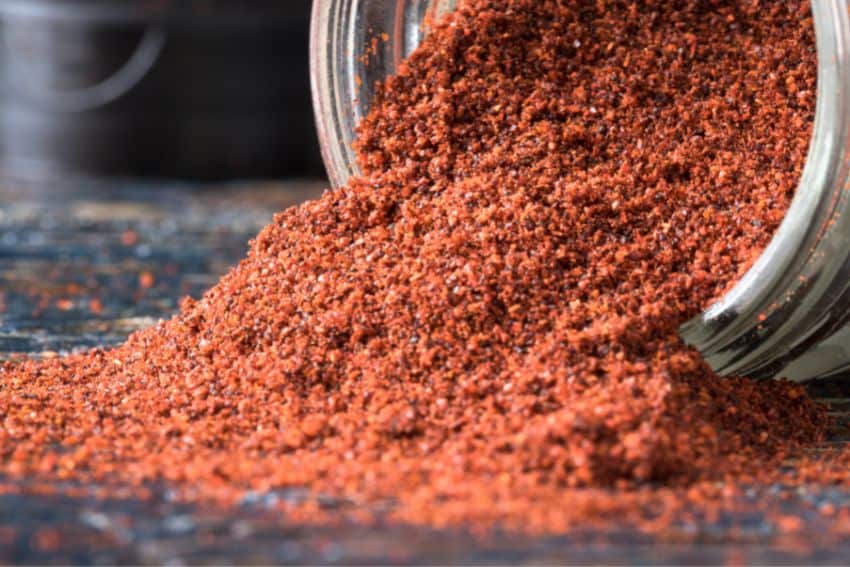Black pepper is possibly the most universal seasoning you have on your kitchen table, right after salt. Almost every cuisine worldwide calls for black pepper.
But you might be caught with no black pepper in your pantry to make date-night Gumbo with. Do you run out embarrassingly, or is there a way you can improvise?
Fortunately for you, I have listed out the 12 best substitutes for black pepper, so that you are always prepared to face this day!
Outline
12 Best Substitutes for Black Pepper
1. White Peppercorn
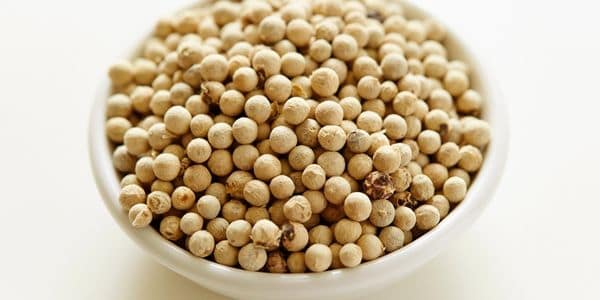
Arguably the best substitute for black pepper, white pepper, or peppercorns is my personal recommendation.
White pepper comes from the same plant as black pepper does. The difference between the two comes from how they are harvested. Black pepper comes from seeds of unripe berries, while white pepper is seeds of fully ripe berries with their skins removed. Both are cooked and toasted.
This means they virtually taste the same, although white pepper has a milder taste than black pepper. White pepper can taste slightly fruity and can be used where you don’t want to alter the color of your dish by using black pepper.
How to Substitute:
One teaspoon of white pepper can substitute for one teaspoon of black pepper.
2. Green Peppercorn
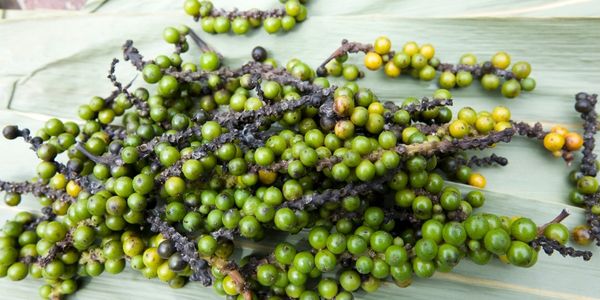
Similar to white peppercorns, green pepper comes from the same plant as black pepper does. The difference in taste comes from when it is harvested and how it is preserved. They come from seeds of the unripe fruit, treated with sulfur dioxide and frozen.
Apart from the color, green peppercorns have a milder flavor with even lesser heat when compared to black pepper.
They even have a brighter, almost floral, aroma. This makes green pepper a perfect substitute for when you want the same flavor, without adding the same amount of heat to your dish.
How to Substitute:
One teaspoon of green pepper substitutes one teaspoon of black pepper.
3. Pink Peppercorn
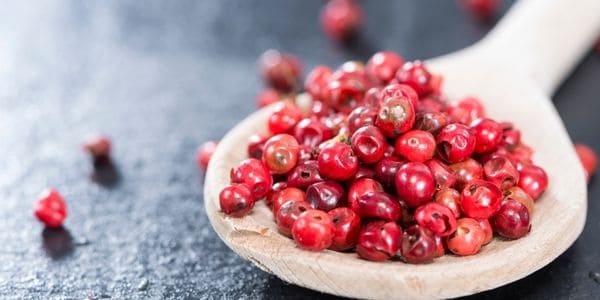
Unlike the first two replacements, pink peppercorn comes from a different plant entirely. Related to the cashew family, pink peppercorns are ideal for when you want a lighter flavor.
Opinion on its heat may vary, but if you want fruity notes in your recipe, this will be a perfect replacement. Personally, they pack the same punch as black pepper in terms of heat.
Use pink pepper when you want a lighter tasting but similarly pepper-ey flavor profile. Use them in meats, risotto, baking, etc.
How to Substitute:
Pink pepper can substitute black pepper in a 1:1 ratio. Can be reduced slightly for lesser heat.
4. Sichuan Seeds
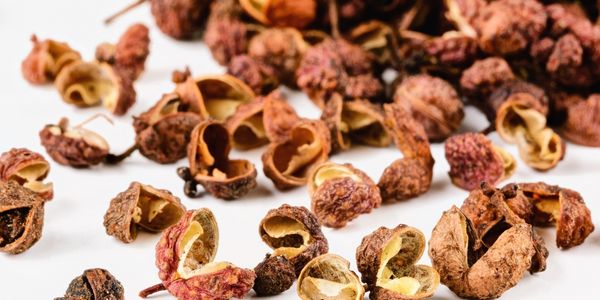
Sichuan seeds are a popular addition to many Chinese dishes and have a distinct flavor profile.
Aside from having a spicy kick, they cause a numbing effect on your tongue, which gradually becomes a tingling effect that many people crave.
What makes Sichuan seed an ideal substitute for black pepper is the aroma and the slight hint of citrus flavors which enhances the overall heat which you get from this ingredient.
You can toast them to add them to various rubs or marinades, or you can ground them into powder to use as a seasoning.
How to Substitute:
½ – 1 teaspoon of Sichuan seeds can substitute one teaspoon of black pepper.
5. Coriander Seeds
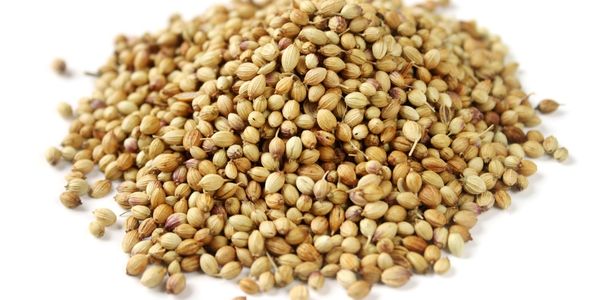
Coriander seeds are not only a great substitute for black pepper, but they also bring their own distinct taste to any dish they are introduced to.
Whether you use them whole or grind them to a powder to use as a seasoning, coriander seeds not only emulate the same heat, but it gives any dish you add coriander to a certain freshness, sweetness, and some citrus undertones.
How to Substitute:
Coriander seeds can substitute black pepper in a 1:1 ratio.
6. Papaya Seeds
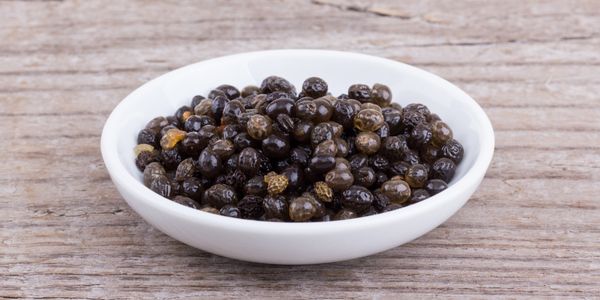
An excellent pick for anyone suffering from allergies to black pepper, papaya seeds can prove to be your new favorite substitute for black pepper.
You might have thrown away the papaya seeds before you started eating the fruit, but now you have an alternative! Simply dry out the papaya seeds and bake them till the seeds have started to crush.
What makes them a viable replacement for black pepper is the fact that they share the same texture, and papaya seeds have a distinct pungent flavor, which emulates black pepper wherever it is needed.
How to Substitute:
One teaspoon of papaya seeds can substitute one teaspoon of black pepper.
7. Cayenne Pepper
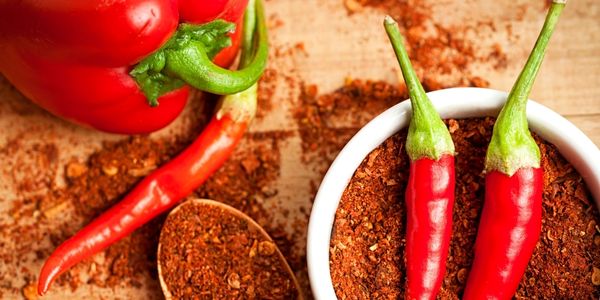
If you’re looking specifically to emulate the spiciness of black pepper, then you need to look no further than cayenne pepper.
Found in its powdered form, it is common for many Cajun and Caribbean dishes. They add a very noticeable heat to your recipe, so always start with a little sprinkle and keep adding more according to your desired amount of spice.
You can go a step further and combine cayenne pepper with white pepper to make up for their lighter flavor, enhancing both ingredients in your dish.
How to Substitute:
Substitute 1 teaspoon of black pepper with ¼ teaspoon of cayenne pepper. Use cayenne pepper and white pepper in a 1:1 ratio for a mixture.
8. Paprika
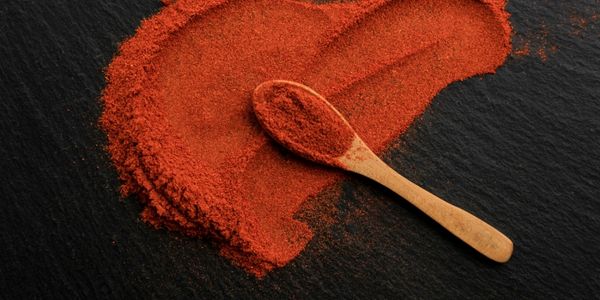
Made from red peppers, and available in Hungarian or Spanish varieties, paprika is the substitute you need when you’re aiming for a little more than spiciness.
Paprika has more than enough heat to substitute for black pepper. Alongside the flavor, paprika lends a red hue to any dish you put it into, as well as giving it a strong and almost fruity aroma.
You can even get it in three different versions, depending on your preference: smoked, sweet, and hot. Regardless of what you choose, paprika comes in handy when making any seafood or meat-based dish.
How to Substitute:
One pinch of paprika is enough to substitute ½ teaspoon of black pepper. Add more according to preference.
9. Ground Ginger
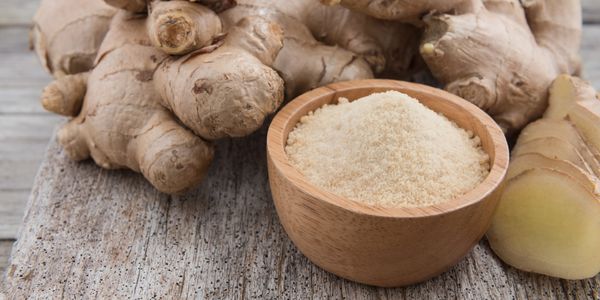
Pulling away from the heat, we come to ginger.
Ground ginger provides a sweet, earthy, and peppery flavor in your dish. If you want a substitute for black pepper which goes beyond just spicy flavors.
Its light color means it can be almost invisible in creamy dishes like soups and side dishes. Though it is more likely to be a white pepper substitute, this can work like a charm when you’re in a pinch.
Ground ginger can also be an excellent addition to desserts like ice cream to add a mild tangy twist to it!
How to Substitute:
One teaspoon of ground ginger can replace one teaspoon of black pepper.
10. Ground Mustard
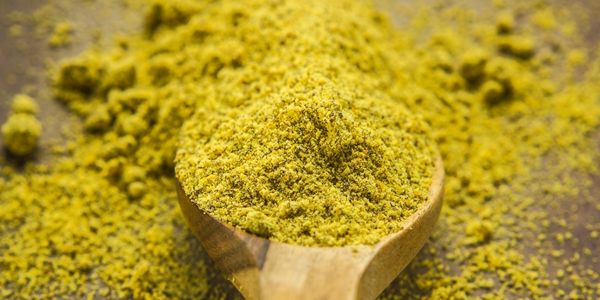
Made from grinding down mustard seeds and removing the seed coats, ground mustard is a decent substitution for black pepper when you need the same aroma and sharp flavor notes.
The taste can be described as the mild, perfect addition to white sauces when you don’t want to alter the color, and can be used in cheeses and beef dishes.
Ground mustard is used for aromatic purposes, making you feel like you’ve opened up your sinuses while providing a mild heat on your tongue.
How to Substitute:
Add a pinch of ground mustard for every ½ teaspoon of black pepper. Add more according to preference.
11. Allspice
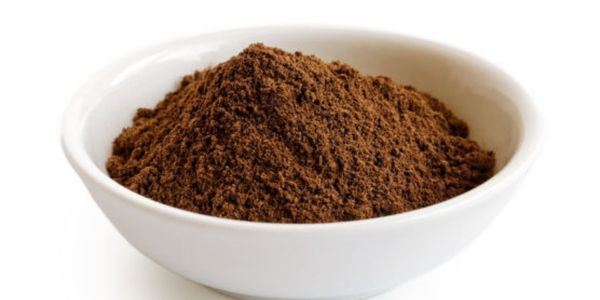
Despite sharing the same appearance, allspice has a more rounded flavor profile when compared to black pepper.
Allspice is a common addition to the many Caribbean and Middle Eastern dishes. You can expect to find hints of cinnamon, pepper, and nutmeg when you add them to your preparation.
Its unique taste makes it an excellent addition or seasoning to both savory and sweet recipes which includes meats and beverages.
How to Substitute:
½ teaspoon of allspice substitutes 1 teaspoon of black pepper.
12. Capers
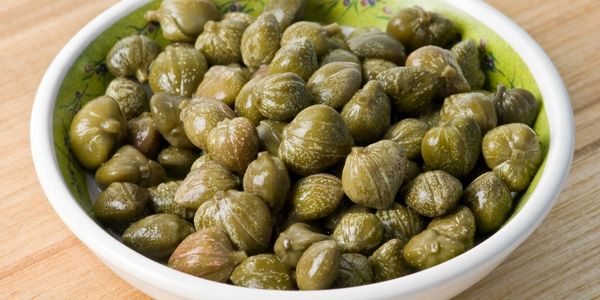
Coming in both dried and brined varieties, capers add a plethora of flavors whenever you add them to any dish.
Added to mostly pasta and stews, they add a salty, and a sharp sour taste to your dish. Most people use capers as a condiment to top off seafood or meats. If you don’t mind a slight sourness, capers can act as a perfect substitution for black pepper.
How to Substitute:
2 tablespoons of capers to substitute 1 teaspoon of black pepper.
Conclusion
Black pepper might be hailed universally as one of the most used spices, but it doesn’t mean it has to be irreplaceable! Next time you’re in a pinch, just look around in your pantry, and you just might find a substitute for black pepper that elevates your favorite dish to the next level.

